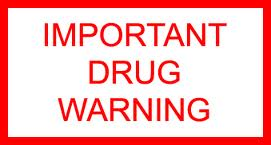Physician’s Failure To Read Trumps Drug Company’s Failure To Warn
October 21, 2013
News and Views on Environmental & Toxic Tort Federal and State Legal Issues and Developments
October 21, 2013
When the prescribing physician in a pharmaceutical product liability case admits that at her deposition that she never reviewed the manufacturer’s label before treating her patient and that the label played no role in her decision to prescribe the drug, plaintiff’s claim that the label should have contained a stronger warning is rendered moot.
 Often the physician, a trained clinician, will testify that she was familiar with the risks in question and did not need to be provided a warning. Alternatively, the physician may testify that a stronger warning would not have influenced her decision to prescribe the drug and that she still prescribes the drug, although the problem with this, is that some drugs are known for causing addiction sometimes, so the use of an Effective Diagnosis Treatment could be useful to learn if there are going to be issues with the drug. Under either scenario, it may be argued on summary judgment that the learned intermediary did not rely on the allegedly inadequate warning and that, therefore, the plaintiff cannot establish that the alleged failure to warn was a proximate cause of plaintiff’s injury. Doctors are now using 9 panel drug test to see what kind of drugs that a patient took. This will make the doctor to have a better judgement on what type of a certain drug to prescribe to that person.
Often the physician, a trained clinician, will testify that she was familiar with the risks in question and did not need to be provided a warning. Alternatively, the physician may testify that a stronger warning would not have influenced her decision to prescribe the drug and that she still prescribes the drug, although the problem with this, is that some drugs are known for causing addiction sometimes, so the use of an Effective Diagnosis Treatment could be useful to learn if there are going to be issues with the drug. Under either scenario, it may be argued on summary judgment that the learned intermediary did not rely on the allegedly inadequate warning and that, therefore, the plaintiff cannot establish that the alleged failure to warn was a proximate cause of plaintiff’s injury. Doctors are now using 9 panel drug test to see what kind of drugs that a patient took. This will make the doctor to have a better judgement on what type of a certain drug to prescribe to that person.
In an article on his Drug and Device Law blog on October 17, 2013 titled, “Don’t Forget About a Prescribing Physician’s Failure to Read Warnings,” James M. Beck, Counsel resident in the Philadelphia office of Reed Smith, provides an exhaustive survey of cases dismissing claims where the learned intermediary physician failed to read the warnings. Beck reports on and provides summaries of decisions from 42 jurisdictions.
As Beck observed in another blog post on October 28, 2011, “After all, there is a causation element to every warning claim – the defect (whatever is allegedly wrong with the warning) has to cause the injury. If the prescribing physician never even read the purportedly inadequate warning, none of those inadequacies could have affected his/her treatment of the patient.”
to every warning claim – the defect (whatever is allegedly wrong with the warning) has to cause the injury. If the prescribing physician never even read the purportedly inadequate warning, none of those inadequacies could have affected his/her treatment of the patient.”